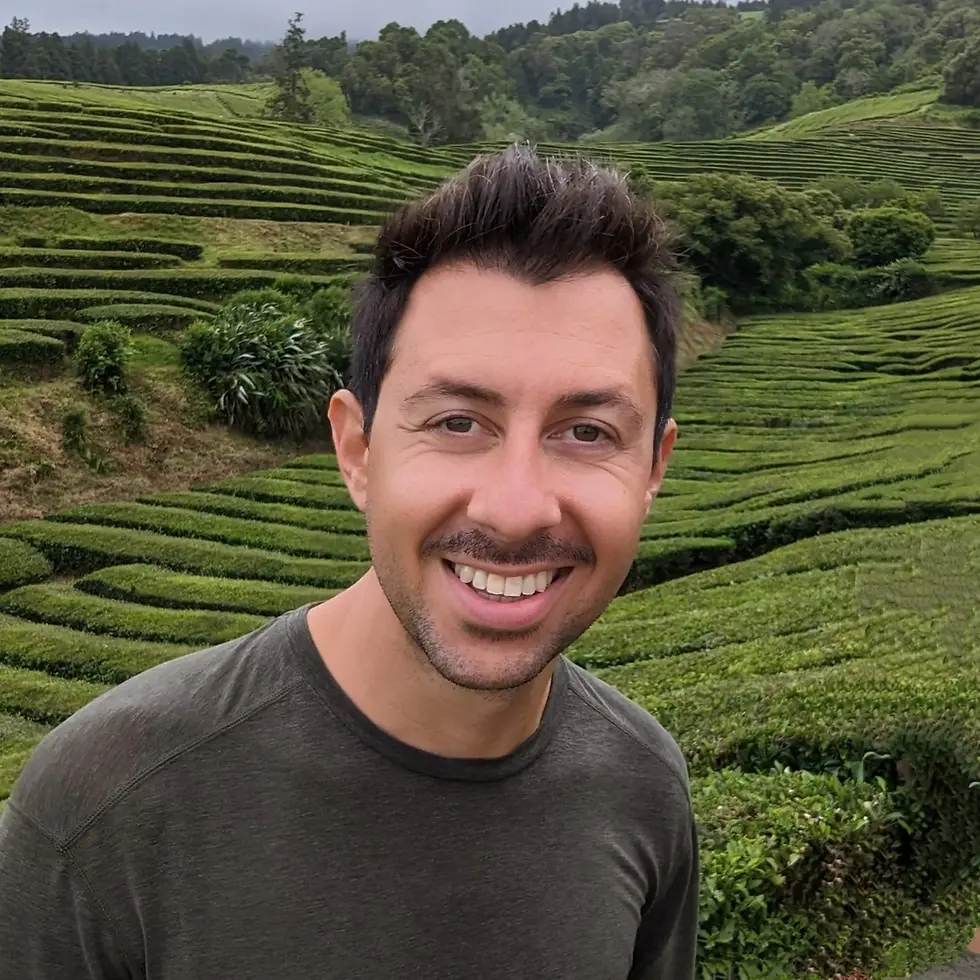Educating Taste: Don Mei on Authenticity, Business, and the Soul of Tea
- Lorela Lohan

- Aug 9, 2025
- 5 min read
Updated: Aug 26, 2025
Interview with Don Mei, Founder of Mei Leaf
Introduction
In a tea industry that’s often slow to evolve, Mei Leaf has stood out as one of the most impactful forces shaping the international conversation around high-quality tea. Founded by Don Mei in London, Mei Leaf was—and continues to be—the first introduction to origin-focused, artisan tea for many global consumers. Through its physical teahouse, dynamic YouTube presence, and curated product line, Mei Leaf bridges Eastern traditions with modern experience. It was an honour to interview Don and capture a glimpse of his deep knowledge of tea markets in the UK and globally.
Lorela: Don, you’ve often described Mei Leaf as a personal journey into tea. Could you tell us how that journey began, and how it evolved into the founding of MeiLeaf in 2006?
Don: My fascination with food and drink started in childhood. I’d have long conversations with my sister about taste, and it’s something that has stayed with me. But the deeper foundation came from my family. We were involved in promoting Chinese philosophy, medicine, and culture in the UK from the 1970s. Our Chinese medical clinic in London also served as a space for education.
After university, I returned to work part-time at the clinic and realised that while tea is foundational in Chinese medicine, we were offering mediocre options. That led to a “quick” plan to learn more and upgrade our teas. But like many in this world, I fell down the rabbit hole.
I began tasting, researching, and sourcing — and before long, tea became its branch of the business. That small project evolved into MeiLeaf.
Lorela: When you first started introducing high-end loose-leaf teas and Gong Fu Cha service in London in 2006, what were some of the biggest hurdles?
Don:
London was not ready. While tea was everywhere, it wasn’t this kind of tea.
People were used to tea bags and maybe a Fortnum & Mason tin — not Gong Fu sessions or origin-specific batches. The first five years were very tough. We made no profit and relied heavily on funding from the clinic. People didn’t understand the format or why they should pay more. And it was all about education — brewing methods, taste, value, even why loose-leaf mattered.
By 2015, we made a bold move: Gong Fu became our default service. It was controversial — but it gave people the "real" experience. Today, we might still be the only teahouse in the UK where Gong Fu is the norm.

Lorela: Mei Leaf’s YouTube channel has become one of the most influential educational platforms for tea globally. How did it start, and what role does it play in your business?
Don: It started with burnout. I was running so many workshops that I could repeat them on autopilot. Someone suggested filming them, so we uploaded a few videos. Two years later, I checked back and found tens of thousands of views. In 2015, we committed to weekly videos — and we’ve stuck to it, missing only one week (the birth of my daughter).
YouTube became our main communication tool and marketing channel. But really, it’s more than that — it's where we build tea heads.
It educates others while I sleep. It builds a discerning community. It's central to who we are.
Lorela: What’s your take on the increasing trend of tea education and concerns about the ‘vulgarisation’ of tea knowledge?
Don: There’s a risk of oversimplification. Tea is complex — taste, culture, craft, ritual. Reducing it to “top 5” tips doesn’t do it justice. But accessibility is still essential.
The key is leading people deeper.
Matcha lattes, for instance, are entry points — but can also open people to the idea of comparative tasting and exploring nuance. Tea needs people to guide those journeys thoughtfully. Not everyone will take the same path, but all paths should start from a place of respect and curiosity.
Lorela: Speciality tea is gaining traction, but with it comes hype, shortcuts, and misinformation. What’s your vision for the future of speciality tea, and what role does Mei Leaf play?
Don: I see speciality tea continuing to grow — but the challenge is keeping it authentic.
We need to help consumers develop discernment. When people know how to taste, they can spot the difference between real craftsmanship and marketing fluff.
That’s our role: help people understand tea, not just buy it. We want to empower them to trust their palate, recognise complexity, and stay curious. If we do that, speciality tea will thrive.

Lorela: In a market where tea is often sold as a commodity, how do you evaluate a tea’s ‘character’ when deciding what to offer?
Don: For me, a tea’s “character” is its voice. It’s not just about flavour. A tea can have strength, elegance, wildness — like a personality. I look for consistency, complexity, and uniqueness.
We always ask: “Is this tea interesting? Does it tell its own authentic story? That’s what matters.
Lorela: You’ve mentioned you don’t strictly promote Mei Leaf as ‘direct from the farm.’ Why is that, and how does sourcing work for you?
Don: “Direct from the farm” is a nice marketing phrase, but it's not always realistic. Our job is to find great tea — and sometimes that comes from scouts, collectors, even wholesalers.
We work with people whose taste we trust.
Many of our teas come through scouts who taste widely and send us what they love. We taste it and decide. It’s not the easiest model, but it’s honest and it works for us. We’re not chasing a label — we’re chasing quality.
Lorela: Running a tea business today requires more than passion. What advice would you give someone trying to make a living in speciality tea?
Don:
Find your purpose.
“I love tea” isn’t enough. Ask yourself: what’s your unique contribution? What are your skills? How can you build a business that’s viable and meaningful?
And yes — talk about money. Too many people avoid it. But the industry can’t grow if passionate people can’t make a living. It’s not about selling out. It’s about sustainability.
Lorela: As someone who’s spent over two decades in tea, how do you keep content fresh and stay inspired to keep going?
Don: Tea is bottomless. I’m tasting, creating, solving problems, and learning every day. There’s no shortage of content — just time.
The YouTube channel lets me learn out loud. It’s a commitment — a weekly video, every week. But the community and the momentum keep me going.
And honestly, tea never stops being interesting.
Lorela: Finally, what do you think the tea world needs more of right now?
Don:
Courage. Courage to price fairly. To educate deeply. To innovate without losing the soul of tea. We need people who are bold enough to lead — not just follow trends.
We’ve walked that line our whole journey: making tea approachable, but never shallow. That’s where real growth happens.
Conclusion
Don Mei’s work at Mei Leaf proves that deep sourcing, education, and storytelling can all coexist in a thriving business. He’s one of the rare voices in tea who speaks with equal fluency about profit margins and qi, camera lighting and cultivar terroir. Mei Leaf continues to evolve, not by following the market, but by shaping it. Whether through a YouTube episode or a Gong Fu session in London, Don is helping define what specialty tea looks—and tastes—like for the modern world.
Photo credits: Mei Leaf's website & Don Mei.











Comments